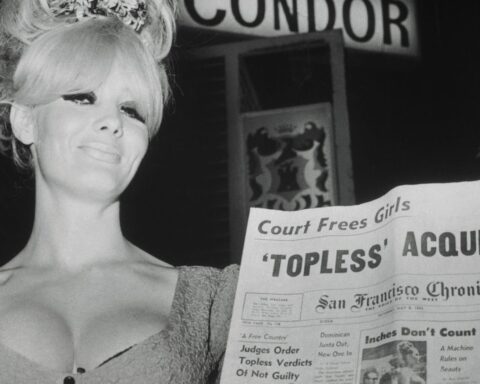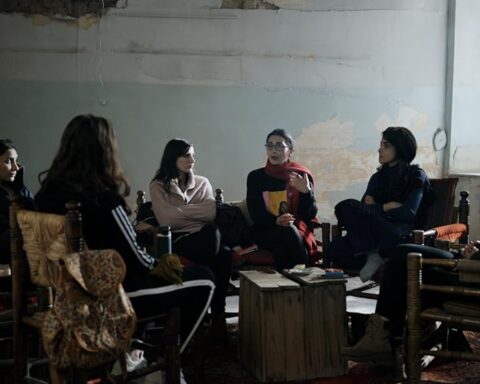Few things in POV’s recent years have drawn as much fruitful attention and discussion in emails and phone calls as the last Policy Matters column on the dearth of female-helmed feature films. Raising questions about gender and cultural power gave permission, I think, for many to give vent to their own suppressed discontent—suppressed because we’ve been muted and made to feel grateful that women have gained any creative power at all in the media. And statistics from various industry associations do indeed point to gains for women in broadcasting in the areas of commissioning, research, story editing, editing and, to a lesser degree, producing.
My intention, though, was to look at gender with respect to the most seemingly privileged and challenging position of all: that of feature film director. In so doing, I unapologetically admit to participating in the myth if not the fetish of the author, knowing full well that authorship is more of a structuring power than a state of pure control. But as structuring powers go, few would deny —from the financiers to the PR machine —the cultural supremacy of the director. And the stats for women directors are not encouraging. For instance, the BC Institute of Film Professional’s report on women’s participation in the BC film and TV industry, reveals a figure that I’ve seen time and again: that less than 11% of directors are women. This is consistent with the figure often cited that 11% of directors in the DGA are women. Same for the DGC.
Perhaps this is because there are many points of discouragement for women. Another study: Montreal’s Réalisatrices Équitables, a group of independent women directors working to gain fair access to film budgets and salaries, has done research revealing that not only are women directors not getting financing to the same degree men are, but that the trend in the last three years is declining (look for their final report in December).
Nearly 50% of film school students are women and it’s little wonder they quickly get soul-worn and waylaid on their way to the director’s chair. Of course complex social and cultural factors are at work here. In addition to deeply rooted sexism and power struggles, there may be our own fears that are partially to blame. For example, some filmmaker/instructors have told me they’ve observed how often women in class will step back to take positions of organizational support in filmmaking projects. That is, women are not elbowing their way into being the writer, DOP or director. This echoes what one young filmmaker / actor told me on a shoot recently. “Women are too afraid. In school I saw it over and over…they never thought they could do it. So they never did.”
It’s an uncomfortable observation. It’s not tantamount to the dreaded “girls fear math” syndrome, but in the mix of questions that we have to ask about this appalling gender disparity, comes the need to take some degree of responsibility for our own ‘fear factor’— why it’s there, if it’s there, and what we can do about it.
It seems to me the critical next step, after the various studies are poured over, is to actively push an agenda to the funders to start devising parity schemes and incentives. This could be hellish, I know, especially in an environment of resource scarcity, but we have to start somewhere. I, for one, do not believe we’d be sacrificing a meritocracy to do it. Women need different entries into the upper echelon of story-telling that take account of fear factors on both sides of the funding and creative tables. We don’t have them and we need them, or we’ll forever cede to male power their tenacious hold on the money and the image.











